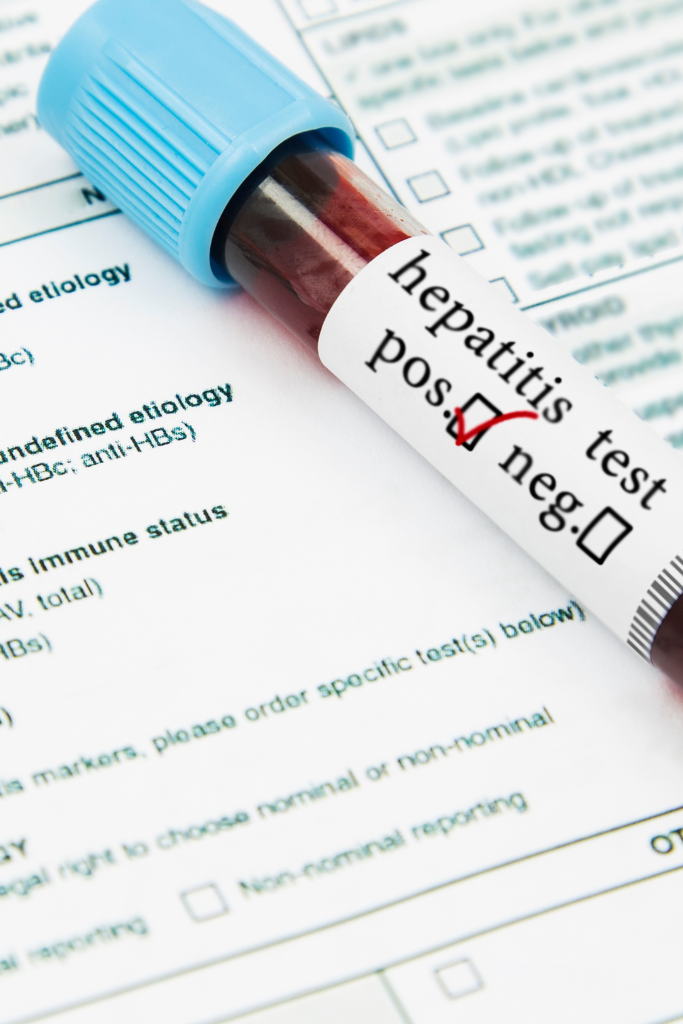Autoimmune hepatitis occurs when your immune system turns against healthy liver cells, which leads to inflammation of the liver.
There are two distinctive types of autoimmune hepatitis:
- Type 1 autoimmune hepatitis is the most common type and may occur at any age; most people with type 1 have a pre-existing autoimmune disease.
- Type 2 autoimmune hepatitis is more common in children and young adults; other autoimmune diseases, however, may follow this.
If left untreated, autoimmune hepatitis can lead to permanent damage and scarring of the liver known as cirrhosis, and in very severe cases, liver failure.
Risk factors and symptoms of autoimmune hepatitis
While the exact causes of autoimmune hepatitis are unclear, various genetic and environmental factors can be linked to this condition. You may also be at risk of developing autoimmune hepatitis if:
You have a family history of the condition
You’re female
You have suffered from an infectious disease in the past such as measles
You already have an autoimmune disease like rheumatoid arthritis
You should seek professional medical help immediately if you begin to display any of the following symptoms:
Loss of appetite
Pale-coloured stools
Abdominal pain
Jaundice
Fatigue
Tests for the diagnosis of autoimmune hepatitis
Your physician will subject you to a series of tests to accurately diagnose whether you’re suffering from autoimmune hepatitis, such as:
Blood tests
Your blood will be examined to detect levels of liver enzymes and whether your liver is functioning efficiently.
Imaging tests
If your blood tests come back normal, your physician may order a CT scan or ultrasound scan to be performed to view your liver.
Liver biopsy
If your physician suspects that the main cause of your symptoms is autoimmune hepatitis, small liver tissue samples may be removed for further examination.

Pointers to prepare for an autoimmune hepatitis diagnosis test
Here’s how you can prepare for any of the tests that you have been recommended to take by your healthcare provider:

Follow any pre-examination restrictions; in some cases, you might have to restrict your diet for more accurate results
Make note of any important personal information, such as significant stresses or any recent changes in your life
List out all the medications you take, from vitamins to supplements, and make sure you include the name of each medication
Write down the symptoms you’re experiencing no matter how mild; even if a symptom may not be related to autoimmune hepatitis, it’s important to keep your physician informed
Questions to ask your healthcare provider about an autoimmune hepatitis diagnosis
Medical tests may seem quite intimidating. Have a list of questions that you can ask your physician. This way, you’ll be informed about your condition, what sort of tests are suitable for you, and what sort of treatment methods will be prescribed to you.
Here are some questions to ask your physician to help you prepare for dealing with an autoimmune hepatitis diagnosis:
How extensive is my liver damage?
What are my treatment options?
What tests do I have to go through to confirm my condition?
Will my other health conditions be impacted due to autoimmune hepatitis?

Consult an experienced gastroenterologist for an autoimmune hepatitis diagnosis
Dr Suhirdan Vivekanandarajah is a Sydney-based gastroenterologist and hepatologist specialising in providing expert medical care for gastrointestinal-related illnesses.
Schedule a consultation today to find out more about your digestive health.
It’s normal to have a day or two of throat irritation or bloating following the procedure, but you should call your er, rectal bleeding, or severe pain in the throat, chest, or stomach.
Autoimmune hepatitis occurs when your immune system turns against healthy liver cells, which leads to inflammation of the liver.
There are two distinctive types of autoimmune hepatitis:
- Type 1 autoimmune hepatitis is the most common type and may occur at any age; most people with type 1 have a pre-existing autoimmune disease.
- Type 2 autoimmune hepatitis is more common in children and young adults; other autoimmune diseases, however, may follow this.
If left untreated, autoimmune hepatitis can lead to permanent damage and scarring of the liver known as cirrhosis, and in very severe cases, liver failure.
.
Risk factors and symptoms of autoimmune hepatitis
While the exact causes of autoimmune hepatitis are unclear, various genetic and environmental factors can be linked to this condition. You may also be at risk of developing autoimmune hepatitis if:
You have a family history of the condition
You’re female
You have suffered from an infectious disease in the past such as measles
You already have an autoimmune disease like rheumatoid arthritis
You should seek professional medical help immediately if you begin to display any of the following symptoms:
Loss of appetite
Pale-coloured stools
Abdominal pain
Jaundice
Fatigue
Tests for the diagnosis of autoimmune hepatitis
Your physician will subject you to a series of tests to accurately diagnose whether you’re suffering from autoimmune hepatitis, such as:
Blood tests
Your blood will be examined to detect levels of liver enzymes and whether your liver is functioning efficiently.
Imaging tests
If your blood tests come back normal, your physician may order a CT scan or ultrasound scan to be performed to view your liver.
Liver biopsy
If your physician suspects that the main cause of your symptoms is autoimmune hepatitis, small liver tissue samples may be removed for further examination.

Pointers to prepare for an autoimmune hepatitis diagnosis test
Here’s how you can prepare for any of the tests that you have been recommended to take by your healthcare provider:
Follow any pre-examination restrictions; in some cases, you might have to restrict your diet for more accurate results
Make note of any important personal information, such as significant stresses or any recent changes in your life
List out all the medications you take, from vitamins to supplements, and make sure you include the name of each medication
Write down the symptoms you’re experiencing no matter how mild; even if a symptom may not be related to autoimmune hepatitis, it’s important to keep your physician informed

Questions to ask your healthcare provider about an autoimmune hepatitis diagnosis
Medical tests may seem quite intimidating. Have a list of questions that you can ask your physician. This way, you’ll be informed about your condition, what sort of tests are suitable for you, and what sort of treatment methods will be prescribed to you.
Here are some questions to ask your physician to help you prepare for dealing with an autoimmune hepatitis diagnosis:
How extensive is my liver damage?
What are my treatment options?
What tests do I have to go through to confirm my condition?
Will my other health conditions be impacted due to autoimmune hepatitis?

Consult an experienced gastroenterologist for an autoimmune hepatitis diagnosis
Dr Suhirdan Vivekanandarajah is a Sydney-based gastroenterologist and hepatologist specialising in providing expert medical care for gastrointestinal-related illnesses.
Schedule a consultation today to find out more about your digestive health
It’s normal to have a day or two of throat irritation or bloating following the procedure, but you should call your er, rectal bleeding, or severe pain in the throat, chest, or stomach.
Autoimmune hepatitis occurs when your immune system turns against healthy liver cells, which leads to inflammation of the liver.
There are two distinctive types of autoimmune hepatitis:
Type 1 autoimmune hepatitis is the most common type and may occur at any age; most people with type 1 have a pre-existing autoimmune disease.
Type 2 autoimmune hepatitis is more common in children and young adults; other autoimmune diseases, however, may follow this.
If left untreated, autoimmune hepatitis can lead to permanent damage and scarring of the liver known as cirrhosis, and in very severe cases, liver failure.
Risk factors and symptoms of autoimmune hepatitis
While the exact causes of autoimmune hepatitis are unclear, various genetic and environmental factors can be linked to this condition. You may also be at risk of developing autoimmune hepatitis if:
You have a family history of the condition
You’re female
You have suffered from an infectious disease in the past such as measles
You already have an autoimmune disease like rheumatoid arthritis
You should seek professional medical help immediately if you begin to display any of the following symptoms:
Loss of appetite
Pale-coloured stools
Abdominal pain
Jaundice
Fatigue
Tests for the diagnosis of autoimmune hepatitis
Your physician will subject you to a series of tests to accurately diagnose whether you’re suffering from autoimmune hepatitis, such as:
Blood tests
Your blood will be examined to detect levels of liver enzymes and whether your liver is functioning efficiently.
Imaging tests
If your blood tests come back normal, your physician may order a CT scan or ultrasound scan to be performed to view your liver.
Liver biopsy
If your physician suspects that the main cause of your symptoms is autoimmune hepatitis, small liver tissue samples may be removed for further examination.

Pointers to prepare for an autoimmune hepatitis diagnosis test
Here’s how you can prepare for any of the tests that you have been recommended to take by your healthcare provider:

Follow any pre-examination restrictions; in some cases, you might have to restrict your diet for more accurate results
Make note of any important personal information, such as significant stresses or any recent changes in your life
List out all the medications you take, from vitamins to supplements, and make sure you include the name of each medication
Write down the symptoms you’re experiencing no matter how mild; even if a symptom may not be related to autoimmune hepatitis, it’s important to keep your physician informed
Questions to ask your healthcare provider about an autoimmune hepatitis diagnosis
Medical tests may seem quite intimidating. Have a list of questions that you can ask your physician. This way, you’ll be informed about your condition, what sort of tests are suitable for you, and what sort of treatment methods will be prescribed to you.

Here are some questions to ask your physician to help you prepare for dealing with an autoimmune hepatitis diagnosis:
How extensive is my liver damage?
What are my treatment options?
What tests do I have to go through to confirm my condition?
Will my other health conditions be impacted due to autoimmune hepatitis?
Consult an experienced gastroenterologist for an autoimmune hepatitis diagnosis
Dr Suhirdan Vivekanandarajah is a Sydney-based gastroenterologist and hepatologist specialising in providing expert medical care for gastrointestinal-related illnesses.
Schedule a consultation today to find out more about your digestive health.
It’s normal to have a day or two of throat irritation or bloating following the procedure, but you should call your er, rectal bleeding, or severe pain in the throat, chest, or stomach.
Consult a gastrointestinal specialist for a panendoscopy procedure in Sydney
Dr Suhirdan Vivekanandarajah is a leading gastroenterologist and hepatologist based in Sydney. He specialises in diagnosing and treating gastrointestinal conditions
Schedule a consultation with Dr Suhirdan if you’re experiencing gastrointestinal issues.
